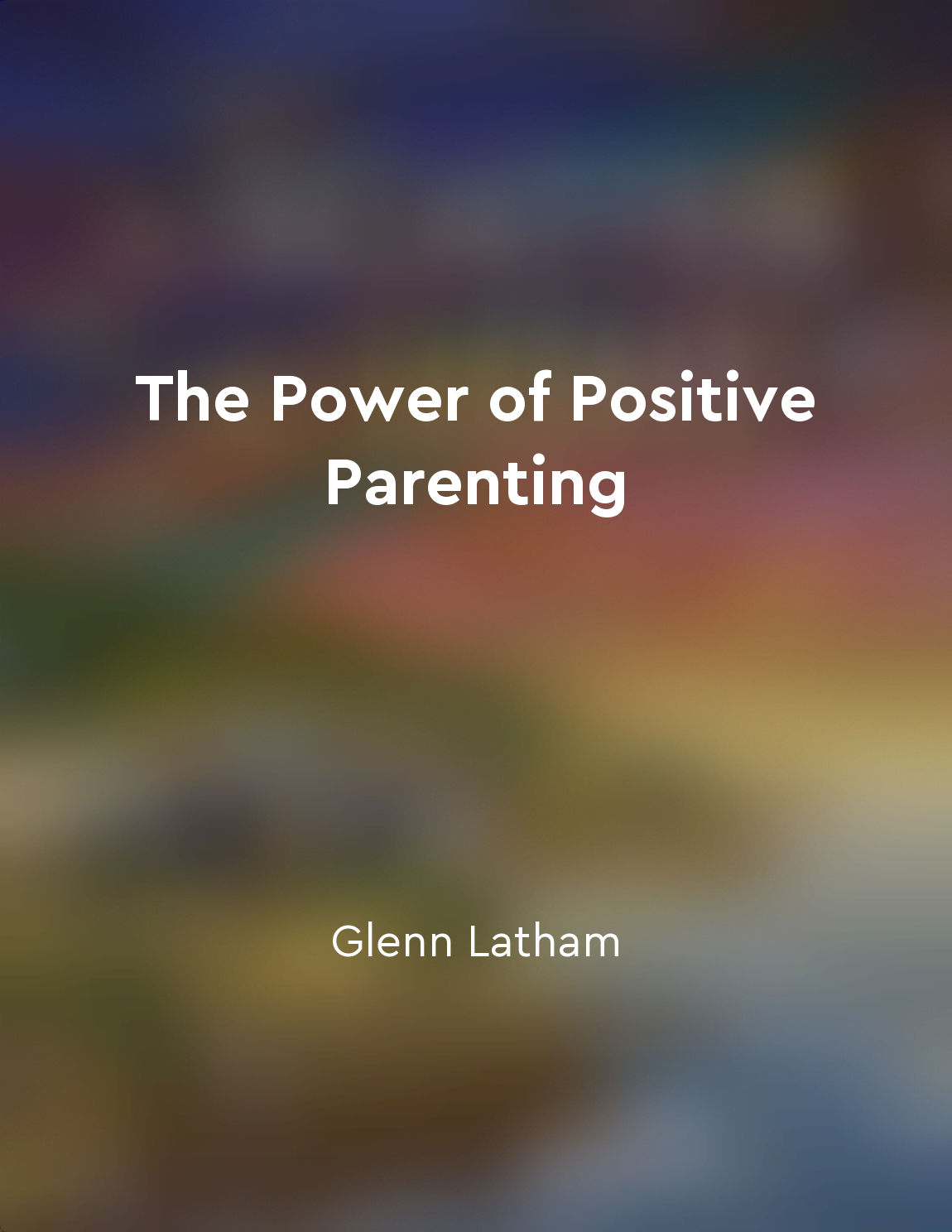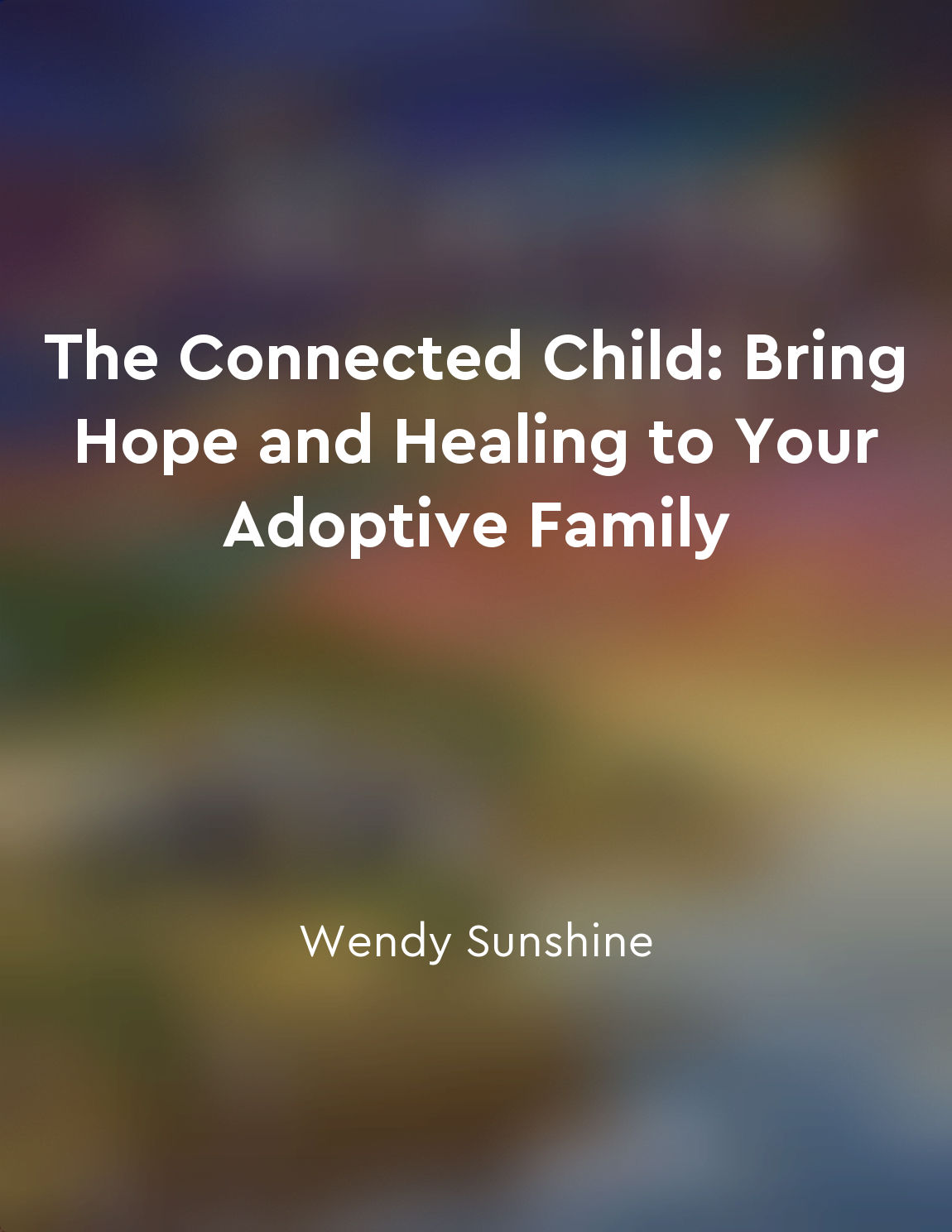Cultivating patience in challenging moments from "summary" of The Fussy Baby Book by William Sears,Martha Sears
Patience is a virtue that many parents find themselves needing more of when faced with a challenging moment with their fussy baby. It can be easy to become frustrated or overwhelmed when your baby is crying inconsolably, refusing to eat, or having trouble sleeping. However, it is important to remember that patience is a skill that can be cultivated and developed over time. One way to cultivate patience in challenging moments is to take a step back and remind yourself that your baby is not crying to make your life difficult. Babies cry as a way of communicating their needs and it is up to you as a parent to try and understand what those needs are. By approaching the situation with empathy and compassion, you can begin to see things from your baby's perspective and respond in a more patient manner. Another helpful strategy for cultivating patience is to practice deep breathing or mindfulness techniques. Taking a few moments to focus on your breath can help to calm your mind and body, making it easier to respond to your baby with patience and understanding. By staying present in the moment and not letting your own feelings of frustration take over, you can create a more peaceful environment for both you and your baby. It is also important to remember that it is okay to ask for help when you need it. Parenting a fussy baby can be incredibly challenging and there is no shame in reaching out to friends, family, or healthcare professionals for support. By seeking help when you need it, you can prevent feelings of burnout and frustration from escalating, allowing you to approach difficult moments with more patience and resilience.- Cultivating patience in challenging moments with your fussy baby is a skill that can be developed with practice and self-awareness. By approaching difficult situations with empathy, practicing mindfulness techniques, and seeking support when needed, you can create a more peaceful and harmonious environment for both you and your baby. Remember, patience is not about never feeling frustrated or overwhelmed, but rather about how you choose to respond to those feelings in a way that is calm and compassionate.
Similar Posts

Parents experience both joy and stress in raising children
Parents are constantly bombarded with conflicting messages about raising children. On one hand, they are told that becoming a p...
Teach life skills through discipline
The fundamental principle of discipline is to teach life skills. Children who are allowed to do anything they please, whenever ...
The anticipation of meeting your little one
The moment you discover you are pregnant, a wave of emotions wash over you. Excitement, joy, and maybe a touch of anxiety all m...

Happiness stems from daily habits
When we think about happiness, we often imagine big events or achievements that will bring us joy. We believe that happiness is...

Implement routines and structure in daily life
Implementing routines and structure in daily life is crucial for maintaining a sense of predictability and stability for both p...
Encouraging independence builds confidence
When children are encouraged to be independent, they gain a sense of accomplishment and self-worth. This can lead to increased ...
Don't judge yourself
The concept of not judging ourselves is a critical part of our spiritual journey. When we constantly evaluate and criticize our...
Advocate for a more compassionate and ecofriendly world
Imagine a world where compassion and eco-friendliness are at the forefront of our daily lives. Picture a place where kindness t...
Integration of the brain's various parts is key
When we talk about the integration of the brain's various parts, we're referring to the way in which different regions of the b...

Setting boundaries helps children feel secure
Setting boundaries helps children feel secure. When children have clear boundaries, they know what to expect and what is expect...

